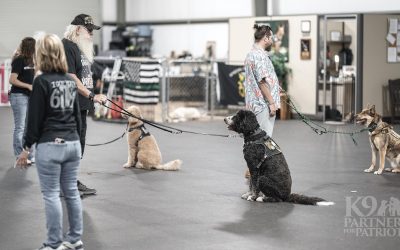A therapy dog is trained to provide affection and comfort to people in hospitals, retirement homes, nursing homes, schools, hospices, disaster areas. Therapy dogs are not service animals and are not afforded the same privileges.
What is a service animal?
The Americans With Disabilities Act protects the rights of people with disabilities to access public places, including stores, restaurants, hotels and hospitals, with their service dogs.
For example, more and more hotels are becoming pet friendly. Guests are even encouraged to bring their pets (for an additional fee of course), and often provide special accommodations for the pet such as a dog bed and treats in the room. Some hotels continue to prohibit pets.
- The pet friendly hotel CANNOT charge an additional fee to a guest accompanied by a service dog.
- The hotel that prohibits pets CANNOT deny access to a service dog nor can they segregate a guest and their service dog to sub-standard accommodations. They must provide the same quality accommodations to a guest with a service dog that they would provide to a guest without one.
Service dogs, under the ADA, must be welcomed in both hotels. Those that are pet friendly as well as those that prohibit pets. Conversely, if a service dog caused damages, the handler would be responsible for paying for necessary repairs and could then be legally asked to leave.
What is a therapy animal?
In comparison to the example covered under service dogs regarding hotel accommodations:
- The pet friendly hotel will usually charge an additional fee to a guest accompanied by by their pet.
- The hotel that prohibits pets does not, under any circumstances allow you to bring your pet.
So, a therapy, support, comfort or emotional dog would be welcome at a pet friendly hotel at an additional charge but would not be welcome at a hotel that prohibits pets.




